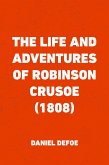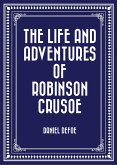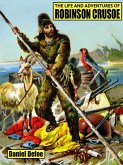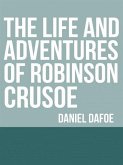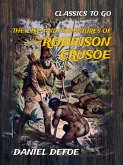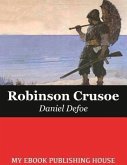In "The Life and Adventures of Robinson Crusoe," originally published in 1719 and revised in subsequent editions, Daniel Defoe weaves a compelling narrative that explores themes of survival, individuality, and the human spirit's resilience. This early work of the novel form combines rich, descriptive prose with a clear moral philosophy, effectively placing Crusoe's journey against the backdrop of 18th-century colonial and economic expansion. The story chronicles Crusoe's shipwreck on a deserted island, detailing his resourcefulness as he confronts isolation and civilization's values, ultimately engaging readers in deep philosophical reflections on society and self. Defoe's narrative style includes vivid imagery and a first-person perspective that immerses readers in Crusoe's psychological and physical struggles. Daniel Defoe (1660-1731), an English writer, journalist, and pamphleteer, drew from his own experiences in trade, travel, and realism in crafting this seminal work. Influenced by Enlightenment ideals and the burgeoning interest in personal adventure narratives, Defoe also faced financial difficulties and imprisonment for his political writings, encapsulating the tumultuous spirit of his era that resonates through Crusoe's journey from despair to self-discovery. Defoe's ability to blend fiction with elements of autobiography grants depth to Crusoe's character, making him an enduring icon of literature. This classic tale is not only a gripping adventure but also a thought-provoking exploration of human nature and societal constructs. I highly recommend "The Life and Adventures of Robinson Crusoe" to readers seeking both entertainment and insight, as it invites a critical examination of independence and the essence of civilized life, ensuring its relevance in contemporary discourse.
Dieser Download kann aus rechtlichen Gründen nur mit Rechnungsadresse in A, B, BG, CY, CZ, D, DK, EW, E, FIN, F, GR, H, IRL, I, LT, L, LR, M, NL, PL, P, R, S, SLO, SK ausgeliefert werden.



